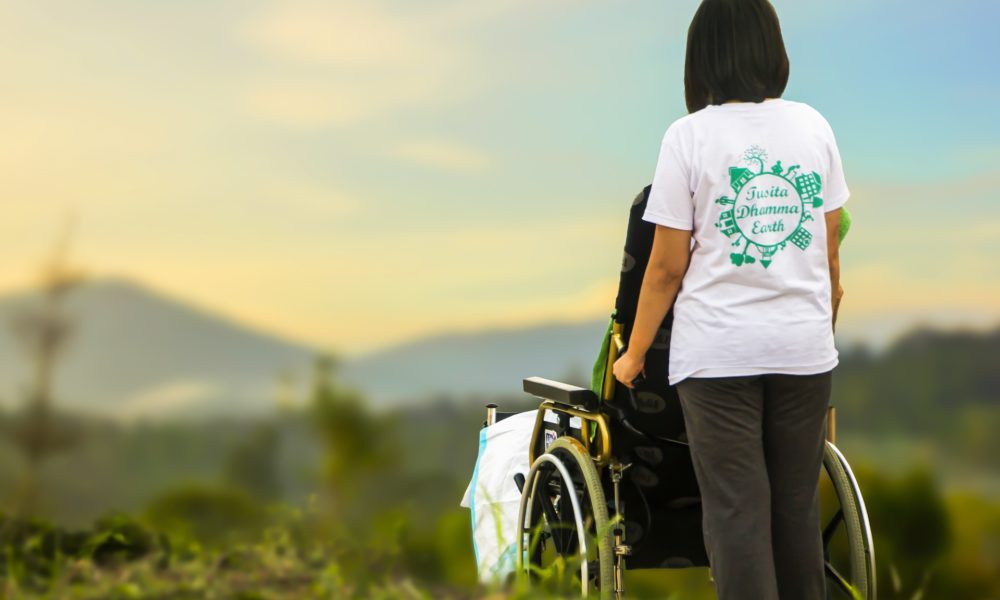Self-care for caregivers is an essential aspect of care. “Put on your own oxygen mask before helping others.” We all know how hard it is to do our best for others when our own needs aren’t met, but it’s much harder to put into practice. A tough 2020 AND 2021 only compounds the daily wear and tear of caregiving, and too many of us are neglecting our own needs! Take an hour of your day to learn why and how to care for yourself so that you can give your best to those who need you.
As part of VOYCE’s Community Education Series, we were joined by Tara Stevens, MSc, MA, LPC, CCTP. Tara is a Licensed Professional Counselor and Certified Clinical Trauma Professional. Tara has worked for Behavioral Health Response for 9 years. She currently serves as the Community Engagement Liaison providing crisis intervention services to Missouri’s Eastern Region. She is an international speaker specializing in trauma, emotional regulation, suicide awareness and prevention, and first responder wellness. Tara shared an excellent guide on self-care for caregivers as part of her presentation for the Community Education Series.
WHY IS SELF-CARE FOR CARE GIVERS IMPORTANT?
- If we don’t take care of ourselves we can’t fully help others
- Stress and trauma have long lasting effects that we need to mitigate and manage
- To prolong our abilities to care for others for longer and to avoid burnout
As Stevens highlighted to our audience, “As helpers, or carers for family, friends or patients, we have to be able to make sure that we can do that both mentally and physically. It can be easy to forget to take care of yourself when you are someone who takes care of others but it’s vital to ensure the quality of care we provide.”
Stevens discussed the importance of regular check-ins with ourselves and to make this a priority in providing care for others. “Being self-aware, taking the time to check in with ourselves, and making any changes to our lifestyle and daily routines as necessary can be so important in our ability to care for others.
WAYS FOR CARE GIVERS TO PRACTICE SELF-CARE
- Make positive lifestyle changes
- Breathing exercises
- Make dietary changes
- Physical exercise
- Mindfulness techniques
- Keep a journal of your feelings
- Seek professional counselling or support
MINDFULNESS
Stevens described the benefits that come with mindfulness, meditation and simply making time to recharge when possible. ” Mindfulness is all about being in the present moment. There are 24 hours in a single day and most people sleep for about 6 of those. This leaves 18 hours a day that we are awake. Of those 18 hours, we are only in the present moment for around 7 of those hours. Much of the time we can be reliving past experiences, conversations we had, or reflecting on negative or stressful events that we have gone through. Mindfulness is all about bringing us back to the present moment which relaxes the mind, brain, and body.”
LEARN MORE & GET CONNECTED
Self-care is essential to ensure that we give our best to those who need it most. When we take the time to look after ourselves we give ourselves an opportunity to recharge physically, mentally, and emotionally. There are many techniques and strategies available to help you de-stress, relax and recuperate. We recommend speaking with an expert as well as doing your own research as to the exercises and training available.
Thank you to Tara Stevens for an informative presentation on Self-care for Caregivers as part of our Community Education Series.
For more information on our guest speaker and their services please visit:
Behavioral Health Response: (314)-469-6644
As part of the Show Me Hope program, VOYCE created a Staff Care Packet which was produced in partnership with Mental Health America of Eastern Missouri. The Staff Care Packet contains resources on coping mechanisms, gratitude exercises, and a guide on positive steps to wellbeing. Download the Staff Care packet below.
VOYCE recently hosted a Community Education session on financing long-term care with valuable information on options and strategies for managing personal finances, assets, and estates. For more information, please see our recent blog post.
To access the full presentation, video, and supporting materials, fill out the form below.

